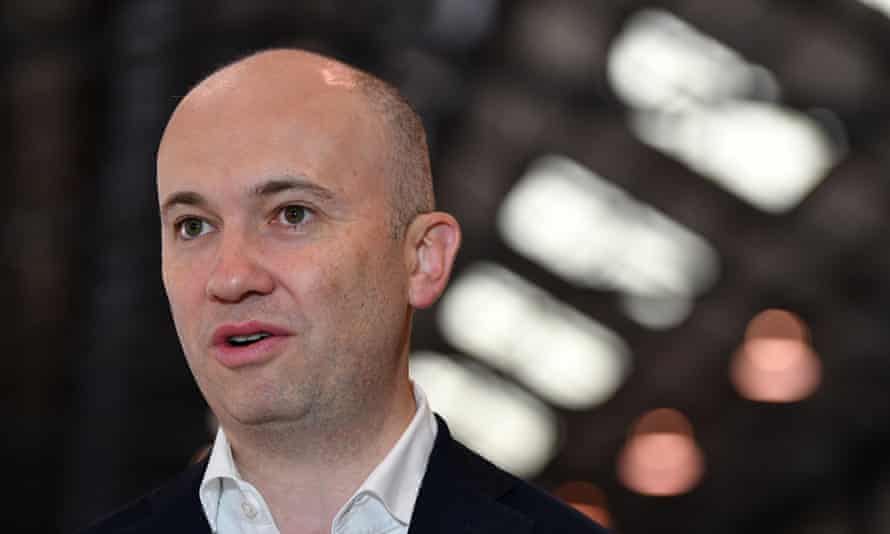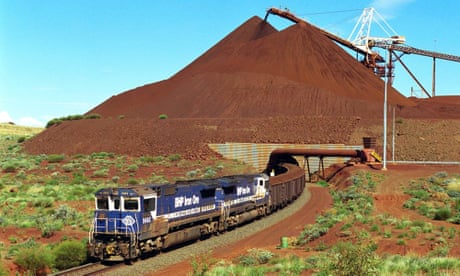Extract from The Guardian
In pointed reference to federal colleagues, Liberal Matt Kean says it’s a ‘cop-out’ for politicians to say it’s up to others to fix the problem.

NSW minister for energy and environment Matt Kean: ‘Australia should not be a climate laggard’.
Last modified on Tue 17 Aug 2021 03.31 AEST
The New South Wales Coalition environment minister has urged voters concerned about the climate crisis to “send a message to all leaders” at the ballot box, and – in a pointed reference to his federal colleagues – warned it is a “cop-out” for politicians to say it is up to others to fix the problem.
In speaking notes released ahead of a speech to be delivered on Tuesday, Matt Kean said the country needed to move “beyond a politics focused on vested interests”, and that every Australian should consider the ramifications of how they voted and take responsibility for “remaking our politics”.
“It is our responsibility when we purchase things for our homes, when we choose where to invest our superannuation, when we decide who we bank with, and when we decide how to vote at the ballot box,” he said in a speech to be delivered at the Better Futures Forum.
“We need to send a message to all leaders, in every part of our society, that failing to deliver on the promise of what we can be is not an option.
“Complaining that it is too hard is not a solution. Saying it is up to others to come up with a plan is a cop-out. The community expects our leaders to get on with it, or get out of the way.”
Kean’s call for a “new politics” on climate follows the deputy prime minister, Barnaby Joyce, last week suggesting emissions action plans were formulated by agencies, not the government. Scott Morrison said Australia “must take action” on climate and the government would formulate a long-term strategy, but that developing countries now accounted for the majority of new emissions.
In his speech notes, Kean said Australia “should not be a climate laggard”. “We should be a climate leader because we can do what other countries can’t – because here in Australia we can protect our planet in ways that lift the living standards of all humanity,” he said.
Speaking at the same event, Ban Ki-moon, a former United Nations secretary general, was to call on Australia to cut greenhouse gas emissions at least in half this decade and commit to net zero by 2050 if it was to live up to the Paris agreement.
In a speech shared with Guardian Australia, Ban said the Morrison government’s 2030 emissions commitment – a 26-28% cut compared with 2005 levels – was “insufficient”, and contrasted Australia’s stance with Australia’s major trading partners Japan, South Korea and China, having set net zero targets for either 2050 or before 2060.
“In the short term the US, Japan, the EU and the UK have committed to emissions reductions that are roughly two to three times as deep as Australia’s current effort,” he said.
“Australia’s current goal of a 26-28% reduction on 2005 levels by 2030, and the absence of a national zero emissions target, is out of step with its states, its trading partners, and other comparable nations. It is insufficient to meet Australia’s Paris agreement commitments.”
Ban said the toll of inaction on climate was ethically “incalculable” and economically “poses a huge threat to Australia’s future prosperity and international standing”. “Australia risks finding itself on the wrong side of carbon-border tariffs as other nations move ahead, seizing the opportunities of the zero-carbon age,” he said.
Ban’s message echoes that of Jonathan Pershing, Joe Biden’s deputy presidential climate envoy, who is speaking at the forum later in the week. Pershing last week told Guardian Australia the scientific evidence suggested Australia should set a target to cut emissions by about 50% by 2030 before the major Cop26 climate summit in Glasgow in November.
Kean planned to suggest to the forum that “the biggest renewable energy package in the nation’s history” that passed state parliament last year with multi-party support was a template for what the country could do.
European carbon tariff could benefit Australia: industry report
A report to be released on Tuesday by the Australian Industry Group, the country’s biggest employer association, found a carbon border tariff planned in Europe was not an imminent threat to Australia, but could present an opportunity.

The analysis by the group’s climate policy expert, Tennant Reed, found only 0.25% of Australia’s trade with Europe would be affected by its current carbon border adjustment mechanism proposal.
The plan would impose a charge on some emissions-intensive imported goods, such as cement, iron, steel, aluminium and fertiliser, so domestic producers under the expanding EU emissions trading scheme were not disadvantaged.
Government MPs have described the scheme as “just a new form of protectionism”. But the industry group’s chief executive, Innes Willox, said Australian producers could actually become more competitive in Europe in the early phases of the scheme.
It would lift product prices as well as costs, and it focused on goods in which Australians were competitive with the European average, he said.
But the report suggested the EU scheme would likely expand, and similar schemes in the US, Japan and other economies could have a wider impact.
“For all the fears of some and hopes of others, the EU and other major economies are not trying to cudgel Australia but to make their own domestic emissions policies work better,” Willox said.
“In the longer term, Australian producers’ continued competitiveness would depend on keeping up with the pace of decarbonisation in global industry and our nation’s success in building a new advantage in cheap clean energy.”
* The Better Futures Forum runs from 17-19 August. Guardian Australia is a media partner.
No comments:
Post a Comment